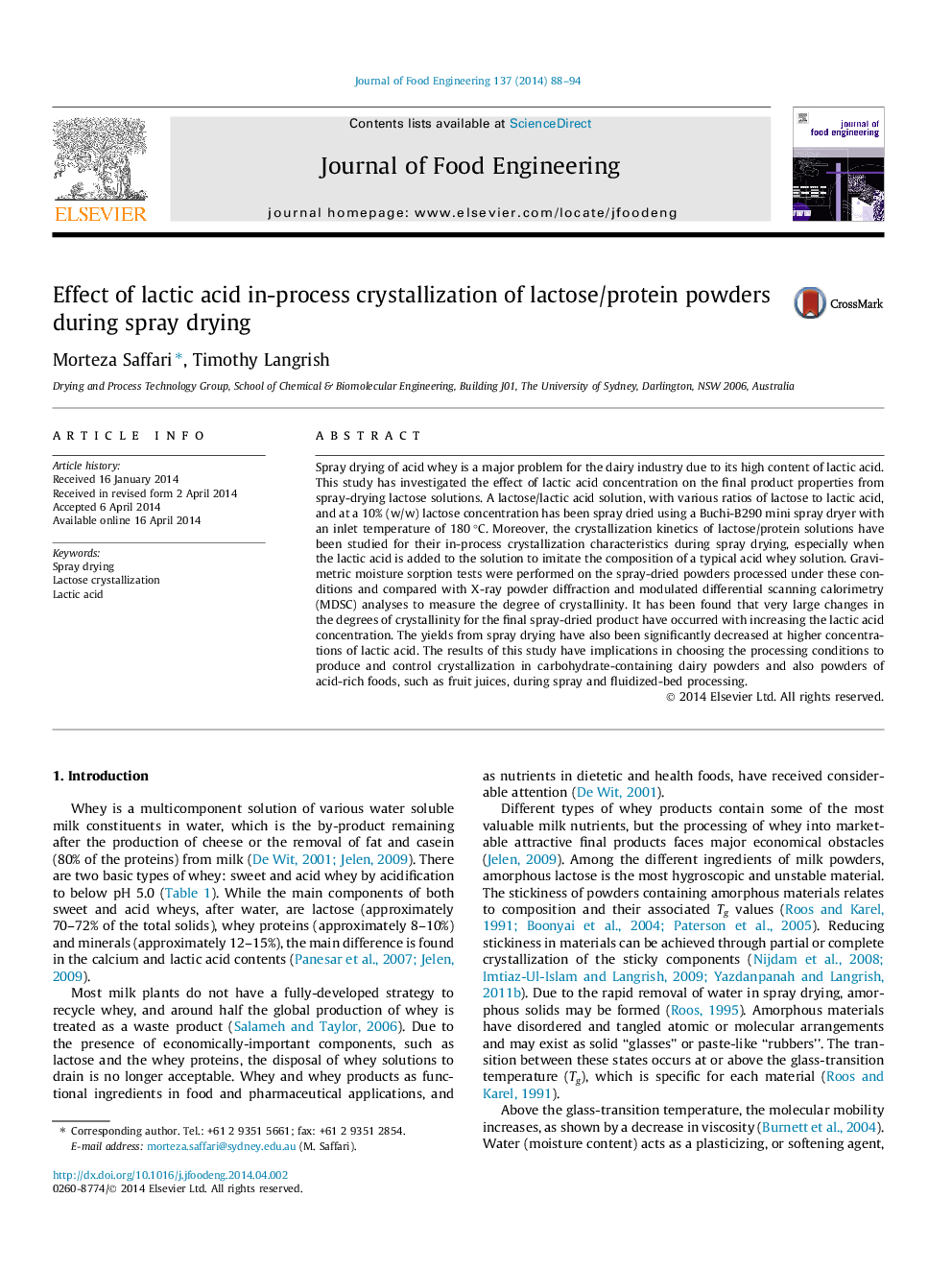| Article ID | Journal | Published Year | Pages | File Type |
|---|---|---|---|---|
| 223126 | Journal of Food Engineering | 2014 | 7 Pages |
•Investigating the effect of lactic acid concentration on the final product properties from spray-drying lactose solutions.•Significant changes in the degrees of crystallinity for the final product with increasing the lactic acid concentration.•Considerable decrease on the yield of the process with increasing the amount of lactic acid concentration.
Spray drying of acid whey is a major problem for the dairy industry due to its high content of lactic acid. This study has investigated the effect of lactic acid concentration on the final product properties from spray-drying lactose solutions. A lactose/lactic acid solution, with various ratios of lactose to lactic acid, and at a 10% (w/w) lactose concentration has been spray dried using a Buchi-B290 mini spray dryer with an inlet temperature of 180 °C. Moreover, the crystallization kinetics of lactose/protein solutions have been studied for their in-process crystallization characteristics during spray drying, especially when the lactic acid is added to the solution to imitate the composition of a typical acid whey solution. Gravimetric moisture sorption tests were performed on the spray-dried powders processed under these conditions and compared with X-ray powder diffraction and modulated differential scanning calorimetry (MDSC) analyses to measure the degree of crystallinity. It has been found that very large changes in the degrees of crystallinity for the final spray-dried product have occurred with increasing the lactic acid concentration. The yields from spray drying have also been significantly decreased at higher concentrations of lactic acid. The results of this study have implications in choosing the processing conditions to produce and control crystallization in carbohydrate-containing dairy powders and also powders of acid-rich foods, such as fruit juices, during spray and fluidized-bed processing.
